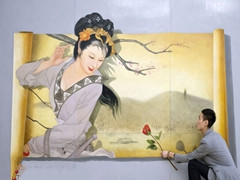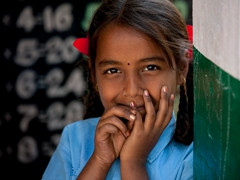Cultural conflicts in real life
By Xin Zhiming (chinadaily.com.cn) Updated: 2014-05-23 10:18For Western people, for example, privacy is important. People generally do not ask each other about their marriage status or salary level. But for many Chinese, they are yet to develop a sense of privacy in the Western sense. Therefore, some Chinese may be seen as being rude when they ask their Western friends about how much they earn.
Cultural conflicts can also be reflected in economic exchanges between China and the West.
Many business people from the West complain that they are not used to the way of business-doing in China. For example, offers of baijiu (Chinese spirits) at banquets is an indispensable part of etiquette in some places in China (especially in the North) and refusal to drink by the guests is deemed seriously impolite, which, in some cases, could affect contract-signing. But for many Westerners, the liquor is hard to swallow.
Medical treatment could be the most controversial. The Chinese people have a long history of using traditional therapies, such as acupuncture, Gua Sha, cupping and moxa-moxibustion, and take it for granted. But for Westerners, those treatments may be more like a way of murder and damage rather than a method of cure, although acupuncture is becoming more popular in the US and Europe.
Traditional Chinese medicine is not alone in being demonized. Some alternative treatments are also illegalized in the US. In 2009, a 13-year-old Minnesota boy, Daniel Hauser, who suffered from cancer, refused chemotherapy (the mainstream orthodox method patients are generally advised to take) and tried to seek alternative treatment in Mexico via southern California. After the local media reported his case, a national search for the boy was launched and, after he was found, a local court intervened, with a judging ordering the boy to take chemotherapy.
In China, traditional Chinese medicine is protected by the Constitution. Hauser’s case would have been unbelievable in China, where numerous people diagnosed with hard-to-cure diseases, such as cancer, seek help from traditional Chinese medicine practitioners, including those who conduct acupuncture, Gua Sha, cupping and moxa-moxibustion.
Such cultural differences are inevitable as business, cultural or political exchanges become more and more frequent between different countries. In return, however, such exchanges help people understand each other and bridge cultural gaps.











